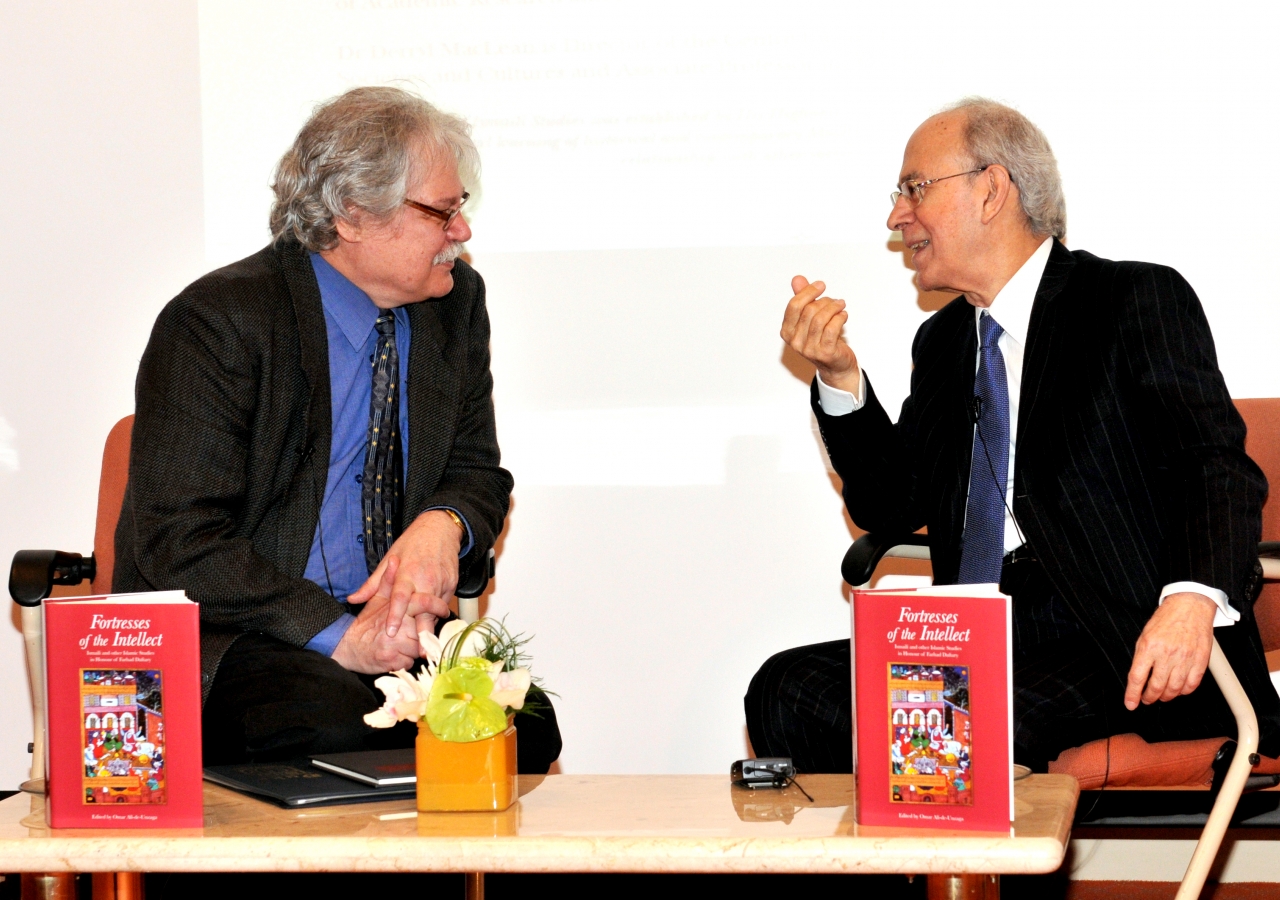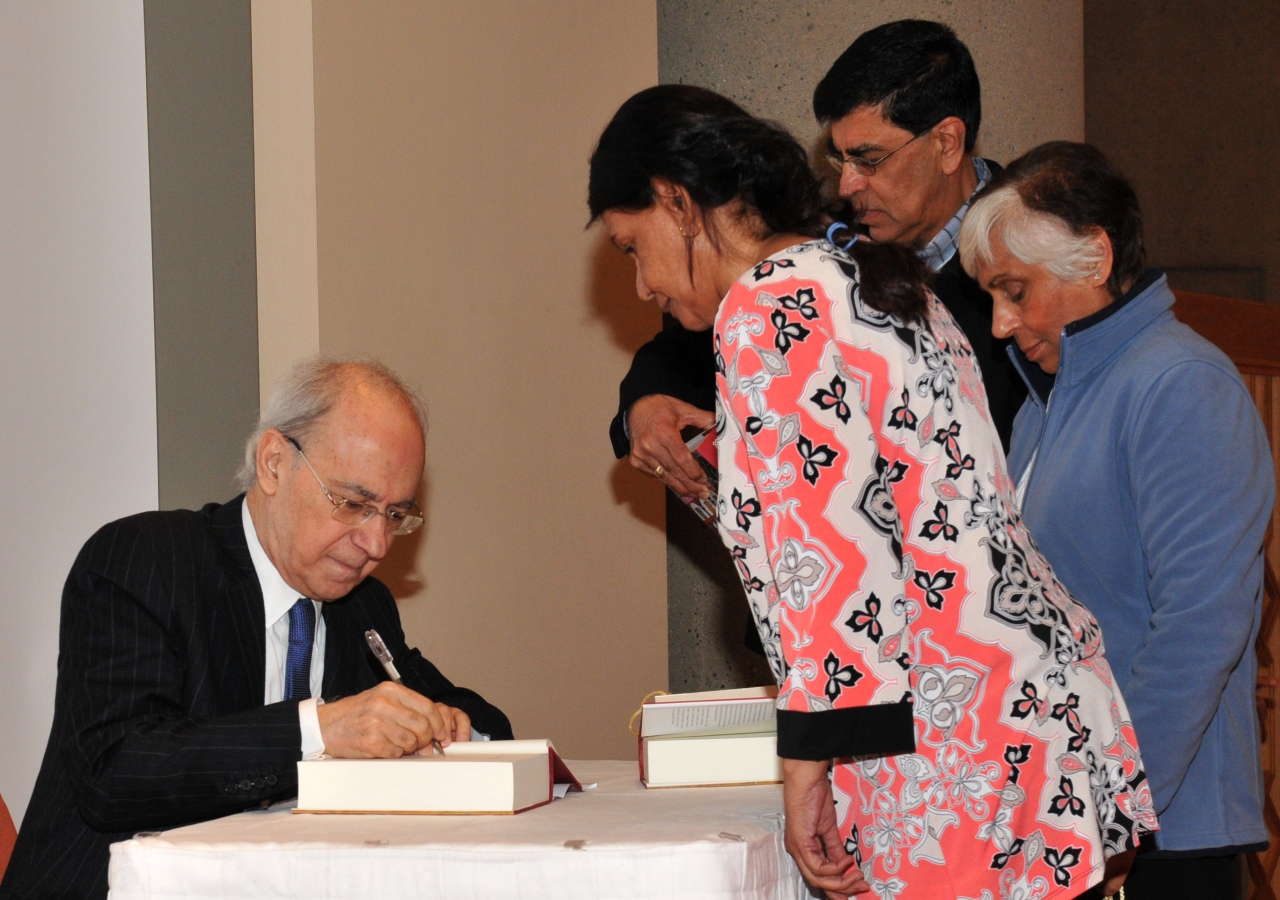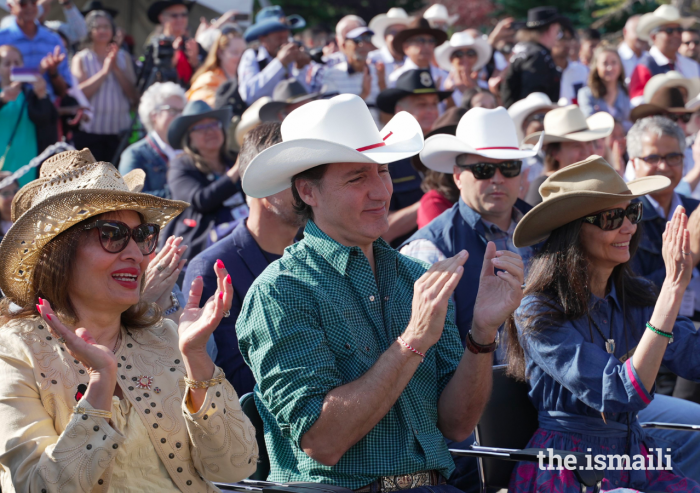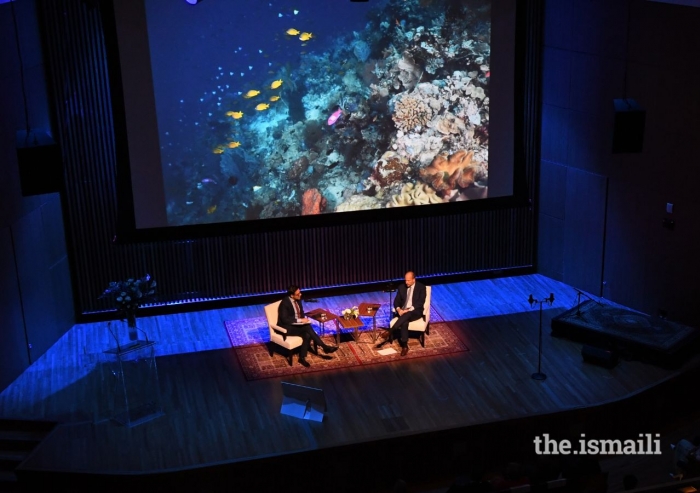What would prompt an aspiring economist to depart his doctoral pursuit in order to seek out a future in Ismaili studies? For Dr Farhad Daftary, it was a combination of curiosity and an excitement about new developments in a field that held great personal interest.
In the mid-1960s, a young Farhad Daftary was enrolled at the University of California at Berkeley to pursue doctoral studies in economic development. He described how he had already completed BA and MA degrees at the American University in Washington DC, but he was curious to learn more about his maternal lineage (which is connected with the ancestors of Mawlana Hazar Imam). He also found renewed excitement in modern works on Islamic studies that had become available to him for the first time.
“These were really so to speak my hobbies,” recalled Dr Daftary in a recent conversation, “and I availed myself of the fantastic book collections of the library in Berkeley.” The works of the Russian orientalist Wladimir Ivanow, in particular, who was commissioned by Imam Sultan Mahomed Shah to study Ismaili literature and history, exerted a profound influence on him.
Now Co-Director and Head of the Department of Academic Research and Publications at The Institute of Ismaili Studies (IIS), Dr Daftary spoke about his unusual career path as part of an on-stage conversation with Dr Derryl MacLean that was held on 20 April at the Ismaili Centre, Burnaby. The focus of their dialogue was on a recently published collection of scholarly perspectives on areas of Ismaili history and thought titled Fortresses of the Intellect, edited by Omar Ali-de-Unzaga. Drawing on examples from Persian studies and the wider Shi'i context, the book honours Dr Daftary's literary contribution to the field, which Professor Azim Nanji writes in his foreword, “will be remembered because it has rehabilitated the value of historical knowledge and the discipline of history itself within the field of Ismaili studies.”
As a fellow historian and the current Director of the Centre for the Comparative Study of Muslim Societies and Cultures at Simon Fraser University, Dr MacLean described the impact of these achievements for Ismaili studies as a feat analogous to the impact of Marshall Hodgson's magnum opus, The Venture of Islam, on the understanding of Islamic civilisation. He also credited Dr Daftary's seminal efforts at disentangling the misunderstood Alamut period – which was shrouded in misinformation – and re-conceiving it on the basis of authoritative sources as a movement to preserve Persianate identitiy.
Stimulated by the notion of an economist turned authority on Ismaili studies, Dr MacLean probed into the conceptual relationship between the study and practice of economics and the exercise of writing history. The diverse audience that included members of the Iranian community, community leaders, professionals in civil society, and young people, followed the conversation with interest as Dr Daftary described how the rigor and method of assigning relative weights to different events or inputs can apply equally to a disciplined assessment of history as it does in economics.
Turning to the book itself, Dr Maclean moderated an in-depth discussion on several emerging ideas, which he summarised as forming clusters of knowledge related to the formative period of Shi'ism and the Ismaili tradition, the Fatimid phase, and the post Fatimid period with an exploration of poetry and philosophy. Looking ahead, he asked about future research plans and the direction forward.
Dr Daftary cited two new areas that the IIS would focus on, namely accessible publications for the benefit of the Jamat and other non-specialist readers, and broader Shi'i studies inclusive of all the various Shi'i communities. The question and answer period that followed, opened with a discussion on the potential use of new technologies to make publications and materials available. Appealing to a tech-savvy generation of e-book and other digitally inclined users, Dr Daftary explained that some of the early publications would be available online. He also revealed plans for courses on Shi'i studies for which access details were being developed.
Another area of audience interest was the impact of the IIS on scholarship and the engagement of its publications. Dr Daftary shared results of an impact study conducted last year, which reported an extremely positive reception of IIS publications by eminent scholars, their increasing availability in numerous libraries, and their growing use as textbooks for various courses in universities both in the West and the East.
Crediting the Institute's established position as a well-reputed academic centre of research and education, Dr Daftary said: “We collaborate with a large number of scholars on a case-by-case basis, and these scholars now come to us and want us to be a platform for their research and publications.”









